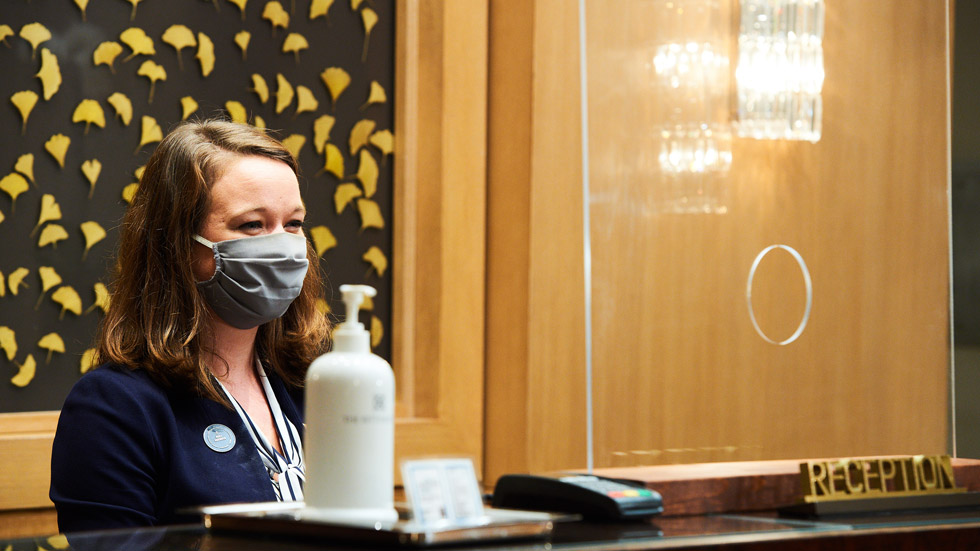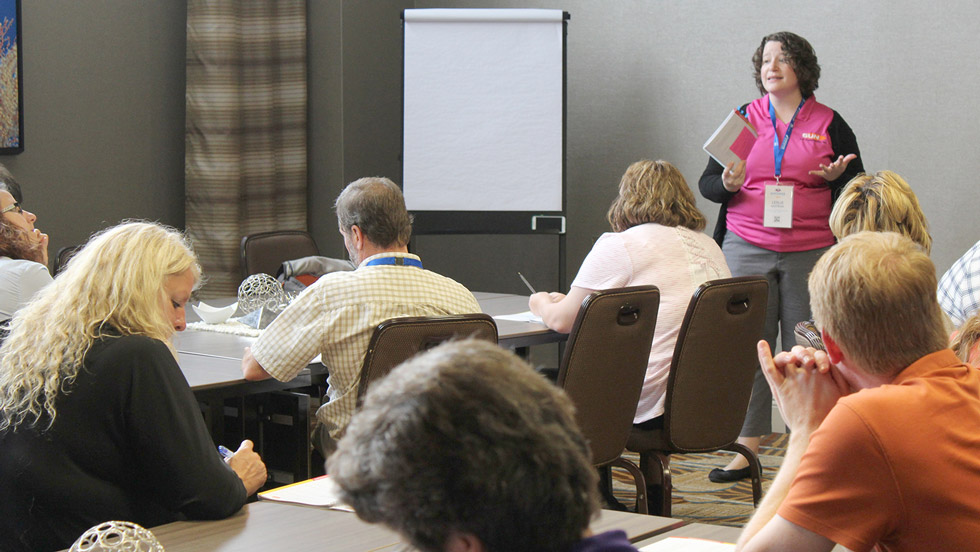RETs are increasingly focused on investing in human capital.
REITs have responded to events of the past year and a half by doubling down on efforts to put people first. During a period of upheaval, while adapting and responding to challenging business conditions, the industry has prioritized the health, safety, and wellbeing of employees, tenants, and communities, and stepped up commitments to foster diverse and inclusive workplaces.
But investing in human capital has long been more than a talking point for REITs. For many years, they have understood that the value of their physical assets is inextricably linked to the value delivered by their employees and the wellbeing of surrounding communities.
According to Nareit’s 2021 REIT Industry ESG Report, 100% of Nareit members reporting to GRESB have community engagement programs, and 52% of REITs participating in the survey rolled out community relief programs in response to the pandemic. Some 77% of REITs reporting to GRESB implemented new employee engagement practices in response to the crisis.
The report also finds that REITs are making diversity, equity, and inclusion (DEI) not just a priority, but an imperative. Indeed, 98% of Nareit members reporting to GRESB indicated that they monitor inclusion and diversity metrics at the board and workforce levels, and 68% of REITs have policies in place for recruiting and hiring a more diverse workforce.
The following case studies offer a glimpse of the innovation and leadership taking place across the REIT industry when it comes to investing in human capital. Read on to learn more about leading-edge approaches to employee engagement and professional development, diversity and inclusion, and building safety during the pandemic era.
Hersha Hospitality Mobilizes on Health and Safety
Even before COVID-19 emerged in the United States, health and wellness played an integral role in the approach to sustainability at Hersha Hospitality Trust (NYSE: HT). When the pandemic struck, the hospitality REIT was well-positioned to quickly develop and mobilize a health and wellness program in response to the crisis.
The proprietary program, called Rest Assured, has played a pivotal role in instilling trust and confidence in building safety among hotel guests, associates, and other stakeholders. One of the first institutional health and safety protocols launched by a REIT in response to the pandemic, Rest Assured focuses on employee training, guest experiences, and advanced, science-based cleaning protocols.
To assuage employees’ safety-related concerns about returning to work, Hersha created seven unique employee training modules on COVID-19 workplace leading practices, customized by position and level, and supplemented them with videos, implementation guides, and standard-operating procedures. After completing Rest Assured training, employees are encouraged to wear a pin that visibly recognizes and rewards their commitment to health and safety.
Hersha also surveyed guests to determine what was most important to them when returning to travel. Nearly 90% emphasized the importance of physical distancing, and 71% said they expected hotels to provide some form of personal protective equipment (PPE). In response, Hersha installed front desk plexiglass shields, added plentiful signage, and implemented QR codes and other contactless forms of ordering and payment, among other measures.
Under the Rest Assured program, employee training and guest experiences are complemented by rigorous, CDC-aligned cleaning protocols at the property level. Since implementing Rest Assured, Hersha has found that 91% of guests surveyed feel confident staying at its properties owing to the company’s commitment to safety. The program has also helped Hersha boost the appeal of its properties among professional sports franchises and other guests that demand heightened building safety.
Even though municipalities have lifted many pandemic-era restrictions, Hersha expects to retain many of the most popular elements of Rest Assured, including such technology as mobile check-in, contactless payment platforms, and online menus, says Director of Sustainability Matthew Lobach.
“Looking forward, guests and associates will likely be much more aware and educated on the health and wellness of buildings while traveling and when choosing a hotel. Communication will also remain essential, whether it has to do with air quality, safety protocols, or wellness-focused amenities offered at Hersha’s hotels,” Lobach says.
Taking Employee Engagement to the Next Level at Invitation Homes
Invitation Homes Inc. (NYSE: INVH) has long worked to foster a culture where employees feel like they’re an important part of the REIT’s mission statement: Together with you we make a house a home.
Until recently, the company relied on a yearly survey that was followed six months later by a ‘pulse check’ to measure employee engagement. Annual or biannual employee engagement surveys tend to have drawbacks, however. Among other things, it can take months for companies to get survey results, which means information may be outdated by the time businesses are ready to act on it.
In April 2020, Invitation Homes decided to try a different approach to employee engagement. The company implemented a continuous-listening platform owned by Peakon (part of Workday Inc.) that allows it to react in real time to employees’ concerns and ideas.
The platform—which Invitation Homes internally branded Our Family. Your Voice.—has 45 questions aligned to 14 drivers of engagement. Each month, employees receive a short email survey containing about nine questions to which they respond anonymously. The platform ensures that all 45 questions are asked during each survey round, and that each employee receives relevant questions. Employees may also leave comments in the platform.
When employees submit their answers, company managers have access to updated feedback and engagement scores. The platform also suggests priorities and actions to managers based on employee feedback. Managers may also engage directly with associates through the platform, although employees retain anonymity.
“The wonderful thing about this [platform] is our associates see and feel the impacts of their feedback and, therefore, continue filling out the survey each month,” says Elizabeth Galloway, executive vice president and chief human resources officer at Invitation Homes.
Indeed, aggregate employee participation in the monthly survey remains high at 89% more than a year after its launch. Invitation Homes has also increased its employee net promoter score from 50 to 55 since it launched the survey in the spring of 2020, which just happened to coincide with the onset of the pandemic. Many companies use net promoter scores, calculated using survey results, as a measure of customer loyalty. Some, like Invitation Homes, have begun using them to gauge employee satisfaction.
Anecdotal evidence also shows that the continuous listening platform has made a difference during a challenging period for many American workers. The platform, for instance, helped Invitation Homes support an employee who felt overwhelmed during the pandemic, Galloway notes.
“The associate was struggling with mental health issues and made a comment in the tool,” she says. After a few anonymous interactions with human resources representatives, the employee decided to come forward and take advantage of the firm’s employee assistance program.
“The associate [later] reached out and expressed how thankful they were for the outlet which helped build trust so that they could get meaningful help,” adds Galloway, who also credits the platform with helping Invitation Homes make strides when it comes to diversity and inclusion, compensation, and employee recognition, among other areas.
Nurturing Internal Talent at Sun Communities
At Sun Communities, Inc. (NYSE: SUI), doing the right thing is paying off in more ways than one.
“One of the things that not only do we believe, but we’ve proven, is that you see a significant return on investment when you’re focused on doing the right thing by your people,” says Marc Farrugia, senior vice president of culture and innovation at Sun. The REIT owns, operates, or has interests in more than 560 manufactured home, recreational vehicle, and marina properties in the U.S. and Canada.
Sun’s commitment to doing the right thing by employees has given rise to a robust internal development program, among other things. The program has helped community managers rise to such roles as senior vice president and paved the way for a number of lateral moves, such as from accounting to sourcing.
Team members are encouraged to apply for internal job postings that align with their interests. As much as possible, Sun fills positions with internal candidates to encourage professional development. A team of trainers—complemented by an extensive library of online learning resources—supports advancement through talent planning and individualized learning plans. On average, Sun fills 21% of open positions each year with internal candidates.
To build on the knowledge and expertise of team members, Sun also has a mentoring program that pairs new community and resort managers with experienced counterparts, as well as a rigorous Executive Management Certification (EMC) program. The latter has helped such team members as Andrew Delong rise through the company’s ranks.
A former property manager, Delong was promoted to his current role, regional vice president of operations, shortly after graduating from the six-month EMC program, which focuses on operations knowledge and critical professional skills, such as leadership.
The program “was one of the more difficult learning programs I’ve participated in,” Delong says. “However, for every bit of difficulty, it was equally rewarding. It deepened my skill sets and challenged what I was capable of. After completing the program, I’m ready to face any future challenges confidently.”
Every other year, Sun hosts a leadership conference that brings its main office and operations leadership teams together to network and build on existing skills through in-person learning and collaboration. Attendees share best practices, participate in team-building events, attend educational sessions, and take part in community outreach projects.
Such events, Farrugia says, have not only helped team members grow professionally but also to feel more connected to the company, which has a geographically dispersed workforce that grows to nearly 4,700 employees during peak seasons.
“As we’ve grown over the years through acquisition, the strategy has always been: how do we focus on bringing team members in, welcoming them with open arms, acclimating them to our culture, and maintaining that small company feel,” Farrugia says.
When it comes to investing in employees, Sun is hardly resting on its laurels. In conjunction with a rebranding of its RV line of business, the company plans to roll out a new hospitality program that will provide advanced training to larger numbers of team members, including property-level talent. Sun is also revisiting the compensation structure for its field team, with an eye toward possibly establishing a company-wide minimum wage that surpasses state requirements.
“There’s a constant investment that we make in our team. We don’t look at it as more overhead. We feel it’s just the right thing to do,” Farrugia says.
Supporting New Families At W.P. Carey
W.P. Carey Inc. (NYSE: WPC) is helping to redefine what it means to foster a diverse and inclusive workforce. In 2019, the net lease REIT launched an adoption and surrogacy assistance program that is open to all employees, regardless of gender identity or sexual orientation.
The program reimburses employees for up to $10,000 per adoption and up to $20,000 per birth via surrogacy. It is complemented by the Carey Fund, which offers a $2,000 yearly allowance to reimburse employees and their family members for medical expenses. In addition, the company’s primary and secondary leave policy allows all primary caregivers, regardless of gender, to take three months off to care for newborns or newly adopted children.
In 2020, less than half of U.S. employers surveyed by Willis Towers Watson said they offered reimbursement for adoption, and many of those who provided the benefit set a reimbursement limit per child, with a median of $5,000. Surrogacy assistance was even less common. Only 9% of employers surveyed offered a surrogacy reimbursement program, and more than two thirds of them set a reimbursement limit per child, with a median of $10,000.
“Our adoption and surrogacy assistance program is a great testament to W.P. Carey’s commitment to DEI, particularly the ‘E’ as it relates to the equalization of access to a natural family process that is often more difficult for LGBTQ+ families,” says Alberto Da Silva, head of diversity & inclusion and equity & compensation manager at W.P. Carey.
The adoption and surrogacy assistance program is part of Connecting With the Whole You, a compensation and benefits program. Each year, the company reviews its suite of benefits to ensure that the offerings meet the needs of its diverse and evolving workforce. The company is also supporting adoption through its charitable giving, having recently contributed to helpusadopt.org. The nonprofit helps individuals and couples manage the often high costs associated with the adoption process.
“Helping employees realize their dream of starting a family, should they choose, is part of this holistic connection,” says Da Silva, who plans to use the adoption and surrogacy assistance program himself.
Having recently bought a house, Da Silva and his boyfriend are ready to start a family. He says the adoption and surrogacy assistance program will help to ease some of the financial concerns associated with becoming a parent. But the value of the program, he notes, goes well beyond financial considerations.
“Knowing that I have access to a robust offering from W. P. Carey certainly eases some of the financial concerns associated with becoming a parent. But, most importantly, feeling the emotional embrace from the company I work for—expressed in the day-to-day interactions with my colleagues and manifested in these generous benefits—makes the difference,” Da Silva says.



